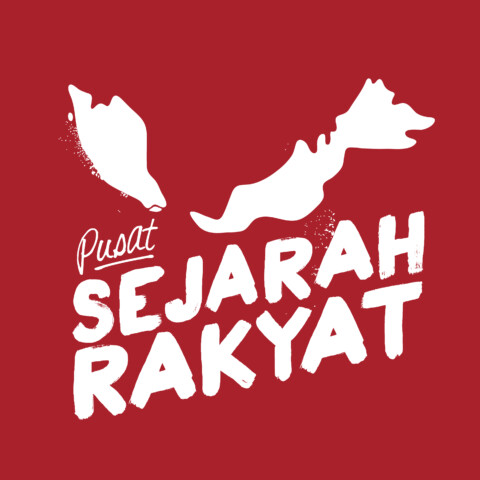- Introduction
Pengenalan - Transcript
Transkrip - Additional Resources
Rujukan Tambahan - Pictures
Gambar - Credits
Kredit
We are proud to present the fourth audio essay for our Suara ((( Pembangunan ))) project entitled “Radio SS Rajula” by Kalash Nanda Kumar.
In this audio essay, Kalash captures his uncle Sivadas’, grandmother Amumma/Lakshmi Bai’s and grandfather Achacha/Sivaram Nair’s journey on Indian Ocean liners before the prevalence of air travel in the 60s. Both of them reminisce on how their experience on the ship “was not just physical but deeply emotional” given the nature of the seas and the process of migration. Anecdotes on the ship’s gigantic infrastructures intertwined with the observations of class and demographics of the people aboard vividly capture the phenomenon of intergenerational labor migration.
Driven by such curiosities and inspired by New York Times Magazine 1619’s project, Kalash reflects on the need to recollect the history of Indian labour migration which is excluded from Malaysia’s narrative of development. Given the significant numbers of Indian labourers who contributed so much to the national economy, it baffles Kalash how such history “was taken for granted” and why “do our policymakers not consider (such) histori(cal) development as Malaysia’s development?”. Such a dimension of history, for Kalash, has to start somewhere.
Piecing together recollections of the author’s family on their everyday lives on Indian Ocean liners, this audio essay narrates the forgotten histories of labour migration to and from Malaysia during its economic expansion and national development.
Suara ((( Pembangunan ))) is a collaboration between Dr. Aizuddin Mohamed Anuar (Lecturer in Education, Keele University) and Zikri Rahman (Programme Coordinator, Pusat Sejarah Rakyat) and is funded by Faculty Research Fund (FRF) 2023-2024, Faculty of Humanities and Social Sciences, Keele University.
Narrator (Kalash Nanda Kumar): My grandfather, P. Gopinatha Menon migrated to Malaya during the late 1940s in search of better opportunities. Like many other South Indians, he was employed in the colonial plantation economy. To facilitate the modern mass migration of Indians, and before the boom of airlines in the 1970s, ships were the transport of choice.
For my grandparents, commercial passenger ships like the Rajula, State of Madras and Chidambaram were lifelines connecting them to their motherland.
But what was it like to travel by sea in the 1960s? How much does a ticket cost? How long do these journeys last? What were the conditions on these ships? These stories are almost lost in service of a convenient mythology of Malaysia.
Imagine being on the deck of the Rajula, a nine thousand tonne steam ship, leaving behind the familiar shores of Madras, with nothing but the horizon ahead.
Interview with Uncle Sivadas
Uncle Sivadas: I’ve come back to Malaysia from while I was studying in India on [inaudible]. I’ve taken the Straits of Madras. That was one of the three ships, actually. First was Straits of Madras, then Rajula and then Chidambaram, the last one. I took the bunk class, the cheapest way to travel. It took about seven days travelling from Madras to Penang, and during that one week, I experienced seasickness. Bunk class is sometimes very warm, so we go and sleep in the open deck. It’s open, just like sleeping on top of a house. And so what you see is the sky, and then sometimes it rains in the middle of the night, and we run off to the bunk, and then the food that is served to us is like, like how prisoners – if you watch some of these movies where prisoners have to queue up and take a tray and on your tray they will put some food.
Uppuma was the main meal for breakfast, and sometimes you will see worms in the uppuma, because they store this flour, you know, for a long time, probably there are worms which survived the heat. It was basically travelling like prisoners. So, it was very interesting, because we had friends, right. So good company for five to seven days.
———-
Narrator (Kalash Nanda Kumar) The journey was not just physical but deeply emotional. Families were often separated, with one or more members travelling ahead to lay the groundwork for a new life.
These voyages were tough. Passengers endured cramped conditions, unpredictable weather, and the uncertainty of what awaited them in a new land. A Reuters news report from 21st February 1947 describes a sit down strike that took place to bring attention to the unsanitary conditions aboard SS Rajula.
But despite these challenges, there was a remarkable sense of unity and support. People shared food, offered comfort, and built communities on these trips.
[Excerpt of interview with Amumma/Lakshmi Bai Menon]
Kalash Nanda Kumar/ Narrator:
Amumma, remember how you told me a story once of how you were on the ship to India with Acha, and Acha fell over from the cot and was crying. What was the story again?
Lakshmi Bai Menon 4:44
Acha was only 10 month old baby. The kapal sometimes shaking what. I put pillow. The pillow all fall down, because Acha also fall down. Baby some more. I started crying. Then so many workers were there. I tell them, fall down. One nurse, Malayali from Bangsar. Mutacha got a first class room. One room, and I was alone, that is why he fell down. after the nurse sleep, on the other bed. Two beds got. She take care of Acha, if there is any fever, anything. Acha was always purging, green color like that. I was very scared until Amumma reach India, our place I cry only because I was scared. If anything happen, what am I supposed to do?
Kalash Nanda Kumar 6:02
How many days – do you remember – on the ship?
Lakshmi Bai Menon 6:05
Seven days.
Kalash Nanda Kumar
From Port Dickson to Madras –
Lakshmi Bai Menon
Port Dickson to Chennai, after that we go to our place.
Kalash Nanda Kumar
On the ship, do you remember what it was like? What food did you eat?
Lakshmi Bai Menon
All kinds of seafood. Fish all look very nice, only thing the mouth no taste. They give curry, but we didnt like.
[Excerpt of interview with Achacha/Sivaram Nair]
Sivaram Nair
I had lots of Muslim friends.
Kalash Nanda Kumar
Lots of Muslim friends?
Sivaram Nair
They’ve got experience of going there up and down. They take care of me. Rajula was very famous you know at the time. Chidambaram came later because it was more comfortable. They got swimming pool all.
Kalash Nanda Kumar
And then what to do on the ship? Anything to do? Any activity?
Sivaram Nair
We sang songs
Kalash Nanda Kumar
Remember what songs you sang? Can you sing a little bit?
Sivaram Nair
Sings “Ellarum Chollanu”
English translation:
Everybody is saying
Everybody is saying
Your heart is stone.
A big black stone.
But when I touched it, I saw
A slice of sugarcane
I saw a sweet sugarcane slice.
The natives say
Your heart is forest
A dense forest
When I entered, I saw a nest
Of a blue cuckoo.
A small nest is all I saw.
Why are you looking?
Why are you looking at us?
Moon,
O, moon
I’m not coming up
I am not coming up
My bridegroom is down here,
My bridegroom is here.
Have to buy ‘chendu’ (bouquet )
Cut ‘mundu’ (here meaning wedding dress)
Have to tie a ‘thaali’ (thread that signifies marriage, worn around neck)
A golden ‘thaali’
No joking, I have to chew tender betal leaves
And redden lips
I have to redden my lips
——-
Narrator (Kalash Nanda Kumar): The story of the S.S. Rajula is, in many ways, the story of Malaysia’s transformation. It’s a tale of how a nation built its future on the blood, sweat, and sacrifices of those who laid the foundation beneath our feet.
- 1619 Project is an ongoing initiative from The New York Times Magazine in looking at the American history of slavery:
https://www.nytimes.com/interactive/2019/08/14/magazine/1619-america-slavery.html
2. SS Rajula’s Passengers Ticket:
https://www.facebook.com/permalink.php/?story_fbid=1320091098163365&id=1050043601834784
3. A recollection of S.S Rajula by George Pereira
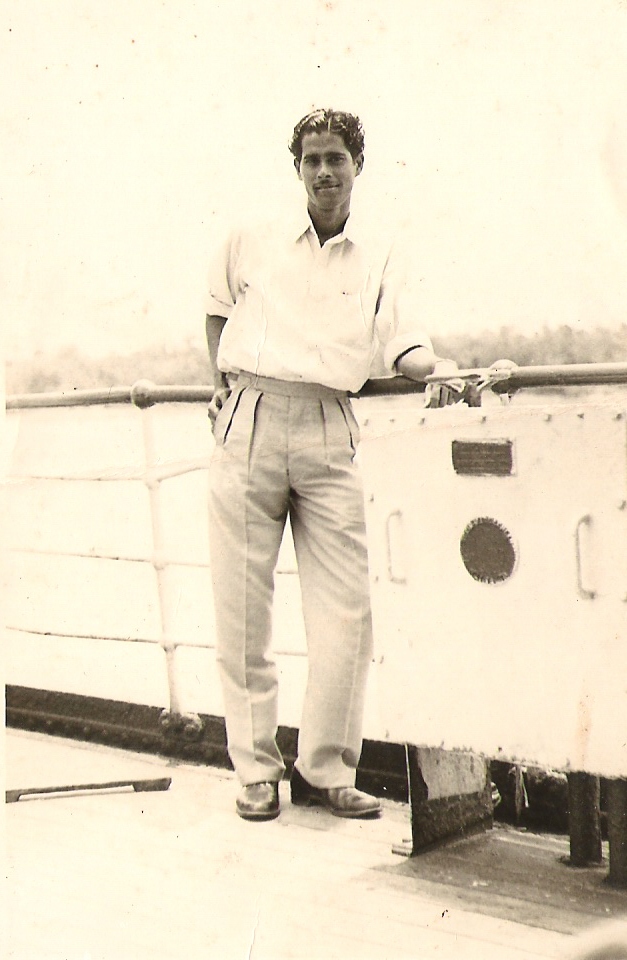
Grandfather on (Unspecified) Ship
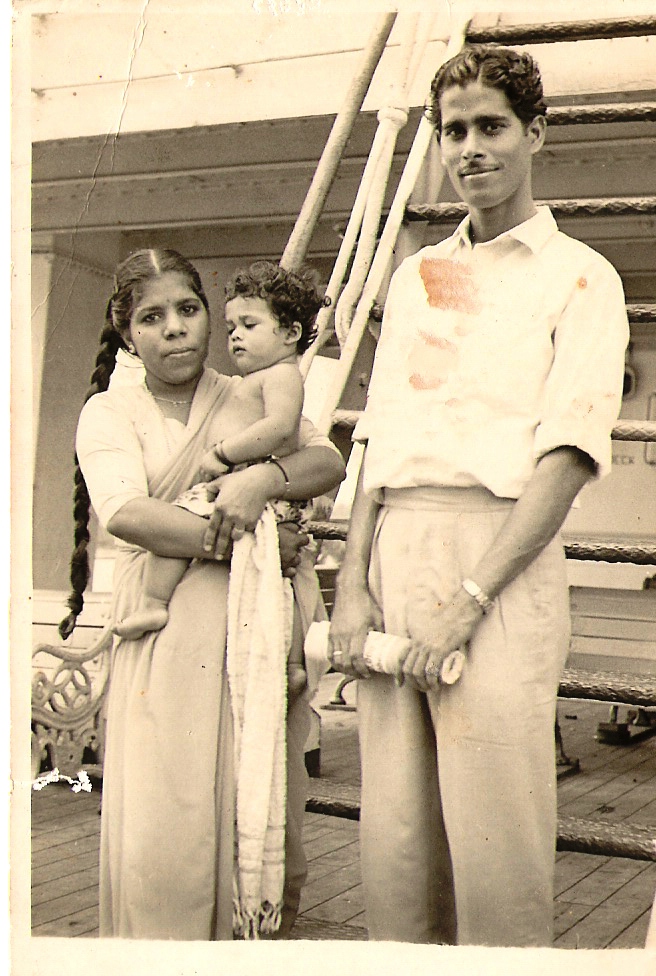
Grandparents on (Unspecified) Ship -2
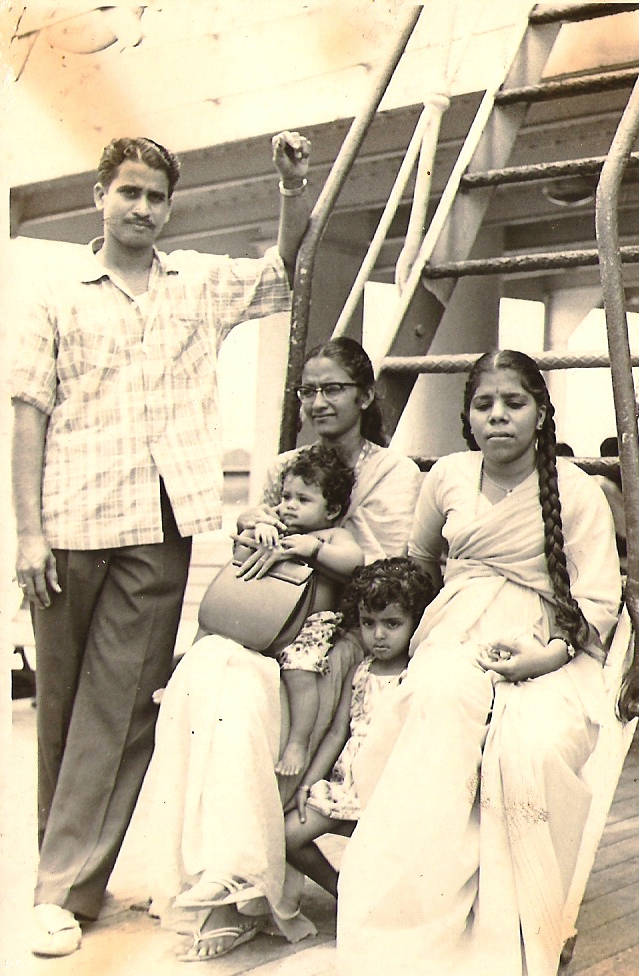
Grandparents on (Unspecified) Ship -3
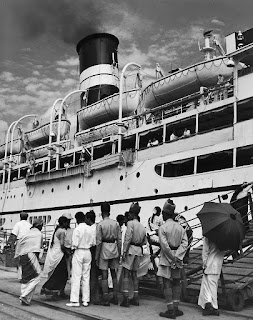
Provided by Martin Cotsford as published in George Pereira blog
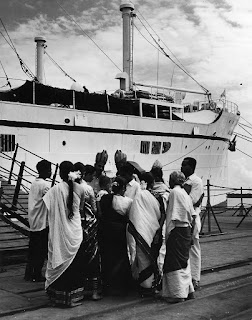
Provided by Martin Cotsford SS Rajula as published in George Pereira blog 2
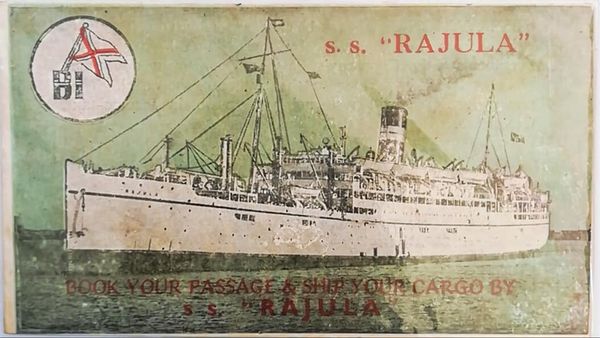
SS Rajula Passenger Ticket by Indian Heritage Museum Penang’s Facebook.
Episode produced and edited by Kalash Nanda Kumar
Featuring interviews with: Uncle Sivadas, grandmother, Lakshmi Bai Menon and grandmother-in-law, Sivaram Nair
Music and Sounds:
- Ambient Piano Music #5 by benpm — https://freesound.org/s/321146/ — License: Attribution 4.0
- Altweibersommer: A Mellow and Ambient Soundscape by kjartan_abel — https://freesound.org/s/540908/ — License: Attribution 4.0
- Electro Ambient Music: Suspension – Pulsating and Futuristic by kjartan_abel — https://freesound.org/s/531854/ — License: Attribution 4.0
- Flock of seagulls.wav by juskiddink — https://freesound.org/s/98479/ — License: Attribution 4.0
- Ocean waves Smygehuk 2.wav by Owl — https://freesound.org/s/195294/ — License: Attribution 4.0
- strawberry hill waves.wav by tim.kahn — https://freesound.org/s/609235/ — License: Attribution NonCommercial 4.0
